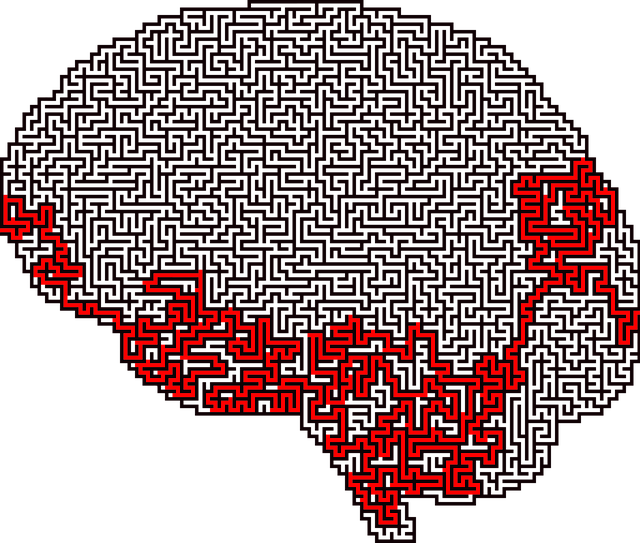Mental illness diagnosis in Highlands Ranch Couples Counseling Therapy is a complex process that requires therapists to go beyond surface-level assessments. It involves understanding biological, psychological, and social factors, as well as life context, cultural background, and personal history. Accurate diagnosis is crucial for effective treatment planning, which includes risk management strategies. Therapists use self-awareness exercises and cultural sensitivity to enhance care. Holistic approaches, like Crisis Intervention Guidance and Emotional Healing Processes, address comorbidity and primary/secondary conditions for lasting anxiety relief. Advanced assessment techniques and patient self-reporting improve diagnostic precision, strengthening the therapeutic bond for profound change in Highlands Ranch Couples Counseling Therapy.
Mental illness diagnosis accuracy is a critical aspect of effective treatment, especially in specialized settings like Highlands Ranch Couples Counseling Therapy. This article delves into the complexities and challenges surrounding mental health diagnoses, exploring why achieving precision is not always straightforward. We then present innovative strategies and technologies that aim to enhance diagnostic accuracy, focusing on the unique needs of couples seeking therapy in Highlands Ranch. By understanding these efforts, we can improve outcomes for those facing mental health struggles.
- Understanding the Complexities of Mental Illness Diagnosis
- Current Challenges in Accurately Diagnosing Mental Health Conditions
- Strategies and Innovations for Enhancing Diagnostic Accuracy in Highlands Ranch Couples Counseling Therapy
Understanding the Complexities of Mental Illness Diagnosis

Mental illness diagnosis is a complex process due to the multifaceted nature of human psychology and diverse presentation of symptoms. Each individual’s experience with mental health challenges is unique, influenced by biological, psychological, and social factors. This complexity necessitates a nuanced approach in Highlands Ranch Couples Counseling Therapy, where therapists must go beyond surface-level assessments to unravel the intricate web of underlying issues.
Accurate diagnosis requires a comprehensive understanding of not just the symptoms but also their context within the individual’s life, cultural background, and personal history. Incorporating risk management planning for mental health professionals is vital to ensure safe and effective treatment. Self-awareness exercises can enhance therapists’ abilities to recognize subtle cues and patterns, while cultivating cultural sensitivity in mental healthcare practice allows for more inclusive and empathetic care, considering the unique expressions of distress across diverse populations.
Current Challenges in Accurately Diagnosing Mental Health Conditions

Diagnosing mental health conditions accurately is a complex task due to several challenges that often hinder effective assessment and treatment planning. One significant hurdle is the subjective nature of many symptoms, which can vary widely among individuals experiencing similar disorders. For instance, what constitutes typical stress or anxiety for one person might be indicative of a more severe condition in another, making it difficult for professionals to differentiate between normal fluctuations and clinically significant issues.
Moreover, comorbidity—the simultaneous presence of two or more disorders—is prevalent in mental health practice. This complicates diagnosis as symptoms can overlap, obscuring the underlying causes. In Highlands Ranch, Colorado, where access to specialized services like Highland Ranch Couples Counseling Therapy is readily available, professionals are encouraged to consider these complexities. Effective interventions often require a holistic approach, incorporating tools like Crisis Intervention Guidance and Emotional Healing Processes to address both primary and secondary conditions, ultimately aiming for lasting Anxiety Relief.
Strategies and Innovations for Enhancing Diagnostic Accuracy in Highlands Ranch Couples Counseling Therapy

In the realm of Highlands Ranch Couples Counseling Therapy, enhancing diagnostic accuracy is paramount for effective treatment. Therapists are increasingly leveraging innovative strategies and tools to ensure a more precise understanding of clients’ emotional landscapes. One such approach involves integrating advanced assessment techniques that go beyond traditional methods, delving into nuanced behavioral patterns and interpersonal dynamics. By combining these insights with patient self-reporting and observational data, counselors can identify subtleties often missed in initial assessments.
Additionally, focusing on Mood Management and Communication Strategies plays a pivotal role. Therapists guide couples through tailored emotional healing processes, fostering open dialogue and enhancing their ability to recognize and manage each other’s mental health needs. These communication strategies not only improve accuracy but also strengthen the therapeutic bond, creating a supportive environment conducive to profound and lasting change.
Mental illness diagnosis accuracy is a multifaceted challenge, but with strategic approaches like those seen in Highlands Ranch Couples Counseling Therapy, significant improvements are achievable. By understanding complexities and implementing innovative strategies, we can enhance diagnostic precision, leading to more effective treatment plans tailored to individual needs. This ensures that those seeking help receive the accurate care they deserve.














